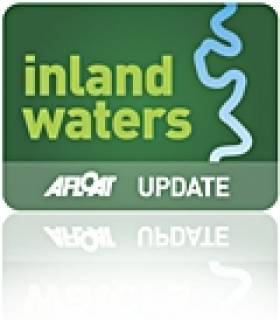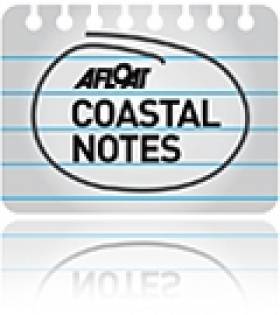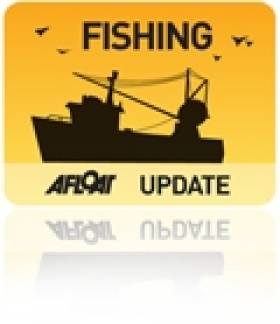Displaying items by tag: sea lice
Sea Lice Pose Significant Threat to Wild Salmon Says New Research
#ATLANTIC SALMON - About 39% of salmon mortalities were attributable to the impact of sea lice on wild salmon fisheries, according to a new international study.
The research, published in Proceedings of the Royal Society B, involved experts from Inland Fisheries Ireland collaborating with the Scottish Oceans Institute at the University of St Andrews, the Department of Zoology at the University of Otago in New Zealand, the Atlantic Veterinary College at the University of Prince Edward Island in Canada and the Institute of Marine Research in Norway.
In a statement on the report, IFI says: "In previously published studies, groups of salmon smolts were treated to protect them against sea lice infestation and other groups were untreated and both groups released to sea into 10 areas of Ireland and Norway. A proportion of these released fish were recaptured as adult salmon one or more years later.
"Analysis of the results of all previously published studies together provide experimental evidence from a large marine ecosystem that sea lice can have large impacts on salmon recruitment, fisheries, and conservation. The sea lice were likely acquired during early marine migration in areas with salmon farming, which elevate local abundances of sea lice."
IFI says the results "indicate that parasite-associated mortality may cause the closure of some fisheries when conservation targets of return adult abundances are not being met. However, the implications of these results may be most serious for small populations in small river systems."
The inland fisheries body explains that the high natural mortality rate of both treated and untreated salmon groups was accounted for, which revealed "a large effect of parasites".
"Precisely because natural mortality rates are high, even a proportionally small additive mortality from parasites can amount to a large loss in adult salmon recruitment," it adds.
Minister of State for Natural Resources Fergus O'Dowd welcomed the report, stating: “From the results of this detailed study, it is crucial that sea lice levels are maintained below [designated] protocol levels, particularly in spring when wild salmon smolts are migrating to sea to avoid increased marine mortality.
Minister O'Dowd added that the results of this study "augment our knowledge in the context of proposals for aquaculture development".
The news comes in the wake of IFI's dispute with Bord Iascaigh Mhara over the exclusion of a report critical of the proposed new deep sea wild salmon farm in Galway Bay from the statutory consultation.
The scheme has faced opposition from local salmon anglers who fear the new facility would pose a threat to wild salmon stocks in Irish rivers by increasing the risk of sea lice infection.
Meeting for Bantry Bay Fish Farm Opponents Tonight
#COASTAL NOTES - Bantry Bay has reached its capacity for salmon farming, says the committee formed to oppose a proposed new facility at Shot Head.
Save Bantry Bay has called a public meeting for supporters tonight (24 March) at Eccles Hotel in Glengarrif, Co Cork, starting at 8.15pm - where chairman Kieran O'Shea will give a presentation on the group's "wide-ranging objections", as The Fish Site reports.
Minister for the Marine Simon Coveney is currently considering the licence application for Marine Harvet's proposed salmon farm at Shot Head in Adrigole.
Concerns among the committee's members include the potential spoiling of the area's natural beauty having a knock-on effect on tourism, and the environmental consequences of algae blooms from nitrogen and phosphorous waste.
Local fisherman fear that a fish farm of more than 100 acres would see the closing off of part of an "important ground for shrimp and prawn".
Possible infection of wild salmon in local river systems by sea lice from farmed salmon is also an issue, with the Environmental Impact Statement for Shot Head highlighting an outbreak of lice at Marine Harvest's facility in Roancarrig two years ago.
The Fish Site has more on the story HERE.
- Coastal Notes
- Fishing
- Bantry Bay
- Co Cork
- fish farm
- salmon farm
- Shot Head
- Adrigole
- Glengarrif
- Eccles Hotel
- Save Bantry Bay
- Minister for the Marine
- Simon Coveney
- Marine Harvest
- tourism
- environment
- algae blooms
- nitrogen
- phosphorous
- waste
- shrimp
- prawn
- infection
- Wild Salmon
- sea lice
- environmental impact statement
- Roancarrigh
Minister Welcomes Improvement in Sea Lice Management on Salmon Farms
Minister of State (with responsibility for fisheries) Sean Connick TD today published the report of the National Implementation Group established in December 2008 to oversee the implementation of the Strategy for Improved Pest Control on Irish Salmon Farms, published in May 2008.
Over the course of the Implementation Group's work, the vast majority of sites maintained lice levels below treatment trigger levels and, in all instances when notices to treat were issued, effective treatment plans were put into practice. Arising from the positive results, the report contains a series of recommendations encompassing treatments, disease monitoring and management practices to continue the progress to date.
Commenting on the report, Minister Connick noted that "Pest control will always remain a challenge requiring active management on any farm. However it is heartening to see that since the introduction of the new Pest Management strategy there has been a sustained reduction in the level of egg-bearing lice on farms in spring time. This illustrates the benefits of co-ordinating efforts between scientists and industry and I commend the participants, including the members of the Group and all salmon farmers who took part in the work, for their mutual co-operation on this issue."
Both the report and the Strategy <http://www.agriculture.gov.ie/media/migration/publications/2008/SeaLiceControlStrategy.pdf> are available for download from the Publications section of the Department's website.


























































